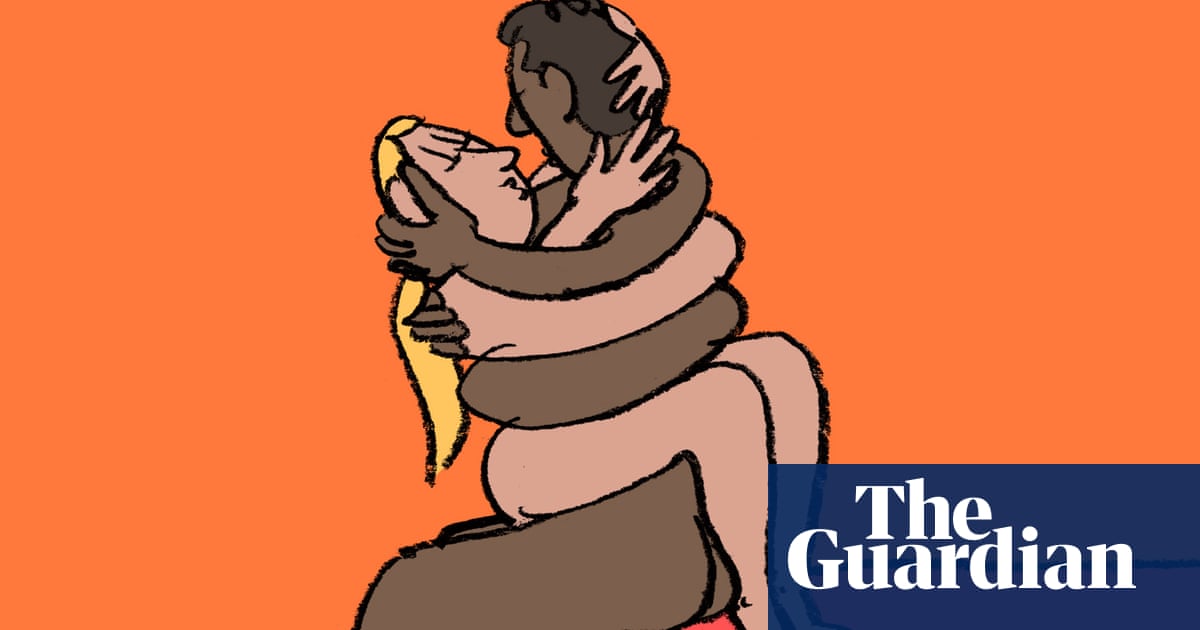
t started with a battered sausage – and OK, if I’m being honest, there were chicken nuggets, too. On 14 April 2020, after three years of vegetarianism and three weeks of lockdown, I shamelessly tucked into some processed meat from the chip shop. Two days later, I wrote the following in my diary: “Honestly, I’m still thinking about it. I simply can’t believe how wonderful it was.”
In truth, I was never a great vegetarian – I ate meat on my birthday, during crying jags, and often when abroad. Still, last April marked a shift in my psyche. I knew when tucking into my nuggets that this wasn’t a regular slip-up. This was an active decision to resume eating meat. I remember how I justified it to myself as I splashed on the salt and vinegar: “We’re being denied so much right now. Why should I deny myself something else?”
Now it’s April again and lockdown is about to ease, but will my principles return alongside the gyms, spas and zoos? Throughout the pandemic, I’ve tried to convince myself my meat-eating is temporary, but will my moral fortitude remain weakened in the imminent (please, please be imminent) Roaring Twenties?
Although I wrestle with the shameless and selfish nature of my lockdown nugget habit (I am a rat! My principles, a sinking ship!), I know that I’m by no means alone. Secretly, people across the country have also abandoned their moral lifestyle choices during the pandemic – some through necessity, but many others have had justifications like mine. When I ask on social media whether anyone has experienced a lapse in willpower during lockdowns one, two or three, I’m inundated with guilty stories of meat-eating, Amazon-ordering and recycling going in the bin.
There is no way of quantifying how many moral compasses started to spin out of control during the pandemic, but social psychologist Roy Baumeister, author of Losing Control: How and Why People Fail at Self-Regulation, isn’t surprised when I ask him. “I do recall that it was a fairly common observation that people did lower their moral standards during wartime,” he says. “One thing we also know is that uncertainty seems to weaken self-control. The pandemic – I think we can all agree – has created a fair amount of uncertainty.” Baumeister explains that self-control is often nicknamed “the moral muscle” because it gives us the capacity to override our impulses and do what’s right.
Hannah Farrington is a 27-year-old influencer from London who has followed a vegan diet for five years. Impulsively – and a little bit drunkenly – she grabbed some cheese from the fridge during the first national lockdown and has been eating the occasional chunk, plus products that contain dairy and egg, ever since. “I still think that eating animal products is wrong and bad, but at the moment I’m allowing myself to be a bit selfish,” she says.
Farrington adds that “more than half” of the vegans she personally knows have experienced similar lapses. One person who has been vegetarian for 12 years tells me they spontaneously tried fried chicken in 2020; another says they indulged in a bacon sandwich as a treat when the first lockdown ended. Since then, they’ve eaten “bacon, chicken wings, chicken thighs, chorizo” and “even pork”, despite the fact they don’t really like it.
Nicole is a 28-year-old from London who has experienced “a general deterioration of stuff that used to be second nature” during the pandemic. She says she’s gone from “100% vegetarian” to “50-70%” and has also begun buying fast fashion even though she previously bought her clothes secondhand. She also now uses Amazon Prime even though she “doesn’t like the idea of giving money to Jeff Bezos”.
“You think, ‘What can you do to enjoy yourself?’ and there’s that awful dopamine hit of buying something quickly that you might have got from having a pint and seeing a friend, which you just can’t have any more.” Nonetheless, Nicole confesses to feeling guilty about her decisions, particularly when buying cheap clothes. She says going to an office everyday throughout the pandemic wore down her usual resolve.
“There’s a combination of feeling like you don’t have any control over the world and just a bit ‘fuck it’ really. You’ve been ground down so much by the past year that it’s hard to care about stuff.”
Amazon use has boomed during the pandemic – in July 2020, the retail giant revealed net sales had risen by 40% to $88.9bn (£65.2bn) in its second quarter. Meanwhile, fast fashion retailer Boohoo reported a 42% increase in sales in the last 10 months of 2020, despite a Sunday Times investigation in July revealing workers at its Leicester supplier were being paid as little as £3.50 an hour. The vast majority of these shoppers probably weren’t abandoning any principles, and shopping online became a necessity after orders to stay at home. Other moral lifestyle choices, such as using a reusable coffee cup and avoiding plastic-wrapped veg, became difficult overnight due to hygiene fears.
This is why Elliot, a 34-year-old from the east Midlands, doesn’t feel too bad about subscribing to Amazon Prime during the pandemic (even though he previously “detested” the company). “I justify it by repeatedly telling myself that it’s the best way to try and avoid Covid,” he says over email, explaining that he bought household goods and toys for his daughter on the site. But subscribing to Amazon isn’t the most immoral thing Elliot has done during the pandemic. During the very first lockdown, he started to shoplift.
“I was doing the weekly shop and accidentally missed scanning a couple of things, but then I realised that they don’t check,” explains Elliot. Over the next few weeks, he deliberately didn’t scan a few items, such as blocks of cheese or fillets of fish during each shop. “It was purely for the fun and thrill of seeing if I could do it,” he explains. “I’m surprised that there’s no guilt. No pride in it either. I just see it as a bit of secret fun.”
Baumeister argues that just like a regular muscle, our “moral muscle” can both be strengthened over time and get tired after use. His famous (but not uncontroversial) ego depletion theory argues that willpower is a finite resource – if we use up all our mental resources when wearing a mask and keeping our distance, then potentially we don’t have willpower left to resist meat, fast fashion, or Jeff Bezos’s wares. When we speak, Baumeister also says that some academics argue “virtue is a matter of habit”, and habits have undeniably been disrupted during the pandemic.
His theories chime with the experiences of Ella, a 22-year-old recent graduate from Manchester University. Ella confesses that while she used to be an avid recycler (“I would honestly go crazy at my boyfriend for leaving the plastic bag inside the cereal box”), her habits changed dramatically in the first week of lockdown one. Now, cardboard ends up in the bin and she no longer separates the items she does recycle.
“I just couldn’t deal with thinking about it,” she explains, adding that being cooped up in a small flat was a strain. “The pandemic has been so consuming and I was also completing my final year of university in the first lockdown so it was too much to think about.” She confesses her justifications “sound pretty silly” and she sometimes feels guilty and annoyed at herself.
There are endless ways in which we have committed moral transgressions during lockdown. One woman tells me she’s become addicted to gossip forums; a young Catholic says he’s worried about motivating himself to go back to church when lockdown ends. A 35-year-old mother from New York tells me that her new year resolution was to cut down her screen time as it had been interfering with her sleep, relationships and work. In the first few months of 2020, she was doing well. “As soon as lockdown happened, I lost my will,” she says. “I wasn’t burnt out, I was burnt to a crisp and panicking. My phone was some small solace or escape, I guess.” She now averages eight hours of screen time a day.
While gossiping and social media use arguably aren’t immoral behaviours, these stories demonstrate a lapse in personal principles. Similarly, though many of us don’t consider smoking immoral, John M Doris – a professor of ethics and philosophy at Cornell University and author of Lack of Character: Personality and Moral Behaviour – says it is “moralised” in society at large.
Drew Moffatt, 33, is a radiographer from Somerset and is one of the estimated 2.2m people smoking more than usual during the pandemic. Though he quit smoking in 2018 for health reasons, he resumed during a night shift in late 2020. Attempts to quit again have since failed. “I have this very irritating thing at the moment where I decide halfway through a pack that that’s it, that’s my last, and I chuck the pack in the bin to be done with it. And then the next morning I go and buy another pack.”
Moffatt believes that being deprived of his normal coping strategies – such as spending time with friends – has weakened his and others’ resolve. He also argues that many people are likely depressed; according to the ONS, the number of adults experiencing depression has doubled during the pandemic. Doris agrees that exacerbated mental ill health “might keep us from being our best self” and feels it’s probable that “a kind of malaise has set in”. He speculates about nihilism: “It’s hard to care about fair trade coffee, maybe, when worried about dying, or losing your job.”
Yet Doris also stresses that catastrophes offer the opportunity for heroism as well as moral malaise. According to the Charities Aid Foundation (CAF), there was a surge in charitable donations during the first lockdown, with the public self-reporting that they gave £800m more to charities in the first half of 2020 than they had in 2019. In May, research from the Centre for Economics and Business Research found that 10m UK adults had been volunteering in their community during the pandemic. For every binned tin and tray of chicken nuggets, there are countless acts of moral heroism being committed every single day.
Almost everyone I spoke to wanted to pick up their principles again post-lockdown. If our moral muscles are indeed weakened, we might have to do a few stretches first – according to one 2009 study by UCL public health researchers, it takes 66 days to form a habit, so we might be back to normal by the end of June. Of course, it’s possible that post-lockdown life could entrench moral laxness: with restaurants opening for the first time in months, will I be able to resist meat? Will I get so drunk that I wake up with a head empty of memories and a Styrofoam box full of crumbs? I’m holding out hope that as everything returns to normal, my attitude to meat will, too. With friends, family, fun, and yes, even structure, back in my life, who needs a battered sausage? (Possibly me. Look, I’m not promising anything.)
“Maybe one kind of treatment for the malaise is to try and be a better person,” Doris muses of the coronavirus crisis. “If effects on our moral function are the symptom, maybe behaving morally is also part of the cure.”
Some names have been changed
White dress by asos.com and necklace by brinkerandeliza.com; purple dress by shushutongstudio.com; stylist Bemi Shaw; photographer’s assistant Alex Poll; food stylist Rebecca Rauter; hair and makeup Juliana Sergot using Lancôme and Kiehl’s; manicurist Amanda Bragoli












